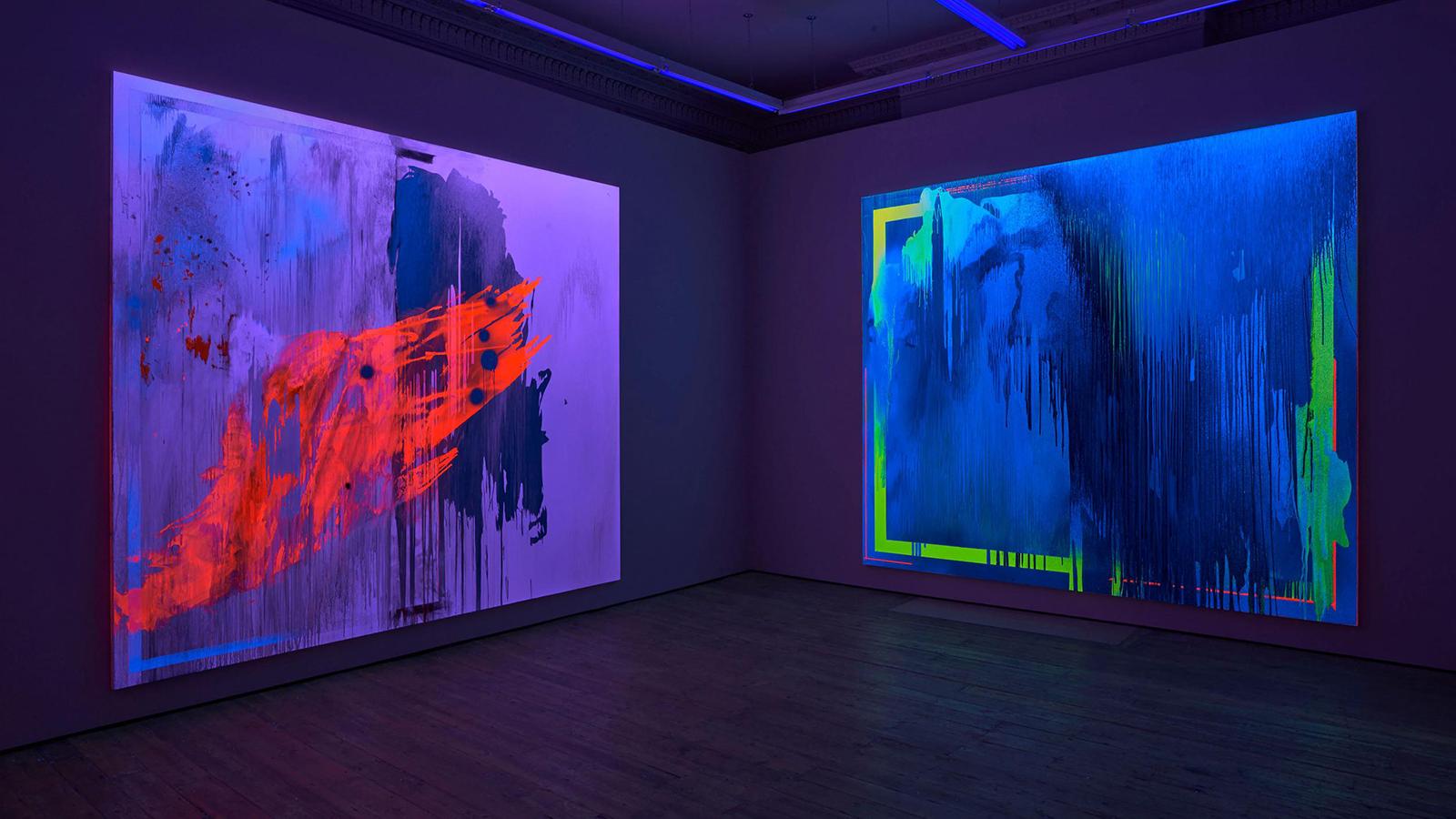From the esoteric experiments of Hilma af Klint to Clement Greenberg’s landmark essay “Modernist Painting,” abstraction defined the scope of modern art—and set the terms of modernism’s loyal opposition—over much, if not most, of the twentieth century. In recent years, art historians and curators have devoted new attention to historical legacies (and geographies) of abstract art, seeking to reframe the social, political, and cultural dimensions of modernism. In tandem with this renewal of scholarly interest, abstraction has reemerged as a global lingua franca of contemporary art, raising questions about the rapport between aesthetic form (and formalism), digital technology, and neoliberal capitalism. Coinciding with the Wexner Center’s presentation of a major exhibition by Jacqueline Humphries, this seminar explores recent debates in and around abstraction, with a particular focus on dialogues between contemporary art and historical modernism.
Image credit: Jacqueline Humphries, exhibition view at Modern Art, 2014. Courtesy of Greene Naftali Gallery.
Autumn 2021
Professor Danny Marcus
Class #23972
In person TUES 2:25-5:00

